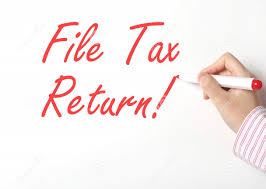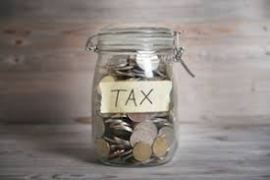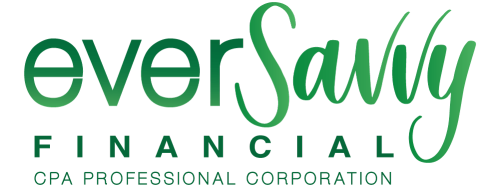Do you have a side hustle? Picked up some freelance work? Fully ditched your day job for self-employment work? If so, here are some items you should consider with regards to income taxes.
This blog post is the first of a two-part series on tax tips for entrepreneurs. The below will specifically focus on unincorporated businesses.
General Tax Filing
Now that you are running a business, lets clear up any confusion regarding which kind of tax return you are required to file. If you are a sole proprietor (not incorporated), then you are not a separate legal entity from the owner. Therefore, you can report all of your business information on your personal tax return, otherwise known as a T1 Income Tax and Benefit Return.

You would report your income and expenses related to your self-employment income on form T2125, Statement of Business or Professional Activities.
If you have a balance owing, it is due April 30th; however, your tax return is not due until June 15th.
GST/HST Registration
If your business makes more than $30k over four consecutive calendar quarters, you are required to collect GST/HST on your taxable sales and must therefore register for a GST/HST registration number. Failure to do so can cost you 13% of taxable sales (in Ontario), as you would have been required to collect and remit the GST/HST on taxable sales.
If you do not meet the $30k threshold, you can still voluntarily register to collect GST/HST. The benefit of voluntarily registering is that you can now claim back valid input tax credits (the GST/HST you pay on your expenses) dollar for dollar, rather than claiming it as a business expense (in which you would reduce your taxable income, thereby saving based on your marginal tax rate). Please note that some exclusions apply. Visit the Canada.ca website for more information.
If you are a GST/HST registrant, you would be required to file a GST/HST return, Form GST34 (frequency of filing depends on taxable income).
Home Office Expenses
You can deduct expenses for the business use of a work space in your home, as long as you meet one of the following conditions:
- it is your principal place of business
- you use the space only to earn your business income, and you use it on a regular and ongoing basis to meet your clients, customers, or patients
Allowable expenses include property taxes, mortgage interest, capital cost allowance, heat, home insurance, electricity, and cleaning materials. To calculate the part you can deduct, use a reasonable basis such as the area of the work space divided by the total area of your home.

The deduction cannot exceed net income from the business before deducting business-use-of-home expenses (expenses cannot create or increase a business loss); however, you can carry-forward the expenses in subsequent taxation years.
Business Use of Vehicle
Keep a daily vehicle log of the kilometers driven for business use. This log (which may be requested by the CRA) provides the basis for a ratio of personal to business use that is applied when computing allowable vehicle expenses.
Having the information readily available will make the calculation easy and also provide supporting documentation in the case of an audit.
Set Aside Money for Taxes
If you have taxable income, you are going to have to pay tax. Avoid the shock by setting money aside for taxes throughout the year.

Unpaid taxes can incur penalties and interest from the CRA, so make sure you have money available for when you need it. A good habit is to set aside a portion of the revenue you earn from each client/customer, noting that this percentage will depend on your taxable income.
Separate Personal and Business Expenses
Make sure to separate your business from personal expenses. It is advisable that you have a separate account for each (and/or separate credit card) so that you can easily track your business expenses.
If your tax situation gets too complicated for you to handle on your own, seek out the help of a tax professional.
~EverSavvy Financial


Recent Comments